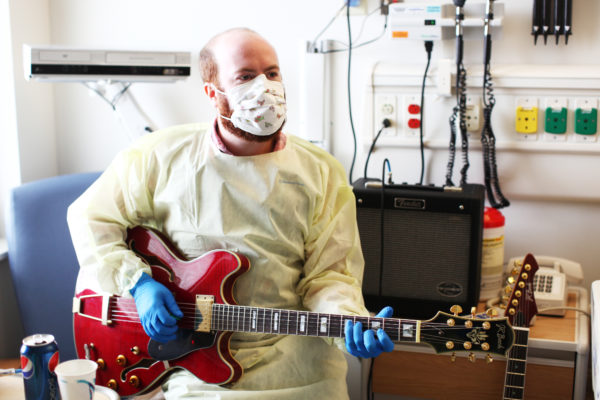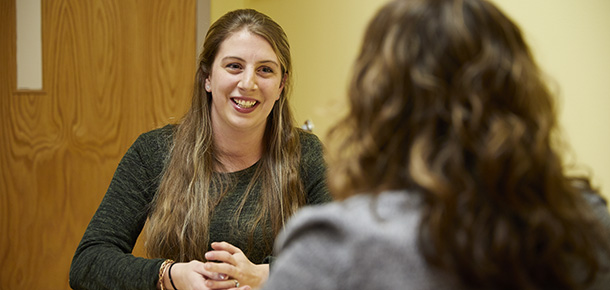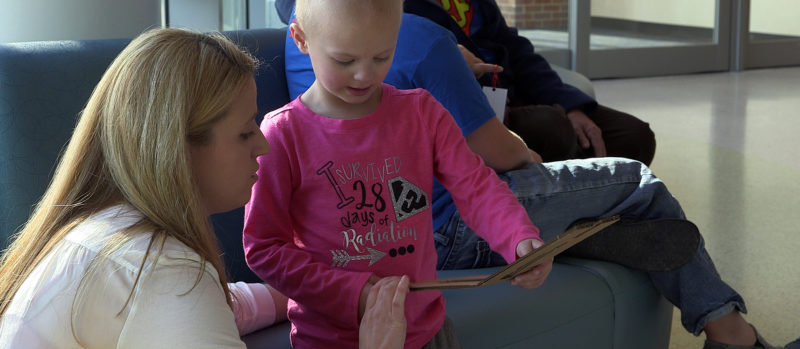The heartbeat is the most basic, beautiful metronome. It is such a powerful, audible representation of life and of the human experience.
A mother of a patient once told me, “I’m afraid that I’m going to forget my daughter’s voice.” This comment compelled me to begin recording portions of music therapy sessions to proactively build a reservoir of positive and natural experiences with patients and their families.
When I began working in the CICU, NICU, PICU, it was more difficult to capture these moments, because some of these patients cannot speak, whether it is due to their age (infant), progression of illness, or intensive medical care (intubation).
I had heard of other music therapists in the medical field adding recordings of in utero heartbeats to lullabies created with high-risk pregnant mothers to increase bonding between the mother and baby.
But it wasn’t until I saw a piece of news highlighting a mother’s response to hearing her bereaved daughter’s heart still beating inside a recipient that sparked a light bulb. With an improvised stethoscope microphone, I realized I could capture patients’ rhythmic essence – their heartbeat – and add it to music that is meaningful to the patient and his or her family.
Working from a clinical foundation of palliative care, a specialized care for people with serious illnesses, my aim has always been to enhance or improve the patient and families’ quality of life. At Cincinnati Children’s, family-centered care is at the root of every intervention we facilitate.
So I realized this music therapy intervention could potentially fulfill those needs as well, and assist with increased coping, anticipatory grief, and pre/post loss and bereavement.
I have found that the process of performing this intervention together with the family is more important than the product, but aesthetic beauty and musicianship is necessary to truly honor the patient and family. I will ask the family what songs are important to the patient and meaningful to them, then the chosen songs are added instrumentally over the beat of the patient’s heart.
The resulting songs are as individualistic as the patients and families I serve and the outcome is a preservation of the patient’s legacy in the form of music.
Families in a situation in which their loved one has a serious illness feel an overwhelming sense of powerlessness. Giving them something proactive and productive to focus on helps to normalize the situation and gives them a little bit of control. This is really the foundation of music therapy: utilizing music to help and support patients and family members address their emotional and social needs and improve quality of life.
I recently helped create a video which explains this heartbeat music therapy and how it has helped one family. You can hear the songs the patient’s father and younger brother chose together, and how the patient’s heartbeat and their love will never stop.
“So I think there is again this word love. It’s capable of so many transformations that can be then something quite practical. Music is the one way in which you can imagine that world—Music that speaks to the human soul, but originates somewhere else, that tells the music, the human soul, that you originate somewhere else. This is the voice of home.”
Robbins, C. (2005). Personal Interview. Nordoff-Robbins Institute. New York, NY: NYU






i dont know if anyone else is going to resd this but if this guy walks in your kids room do what he says you wont regret it. I was hesitant at first but 6 yrs later to hear the cds he made us listening to our 4 kids talk to colt thru brians cds when they werent aloud to see him makes me tear up right now. Your a ray of light when times seem darkest and you deserve a raise even if you are from kentucky. Lol